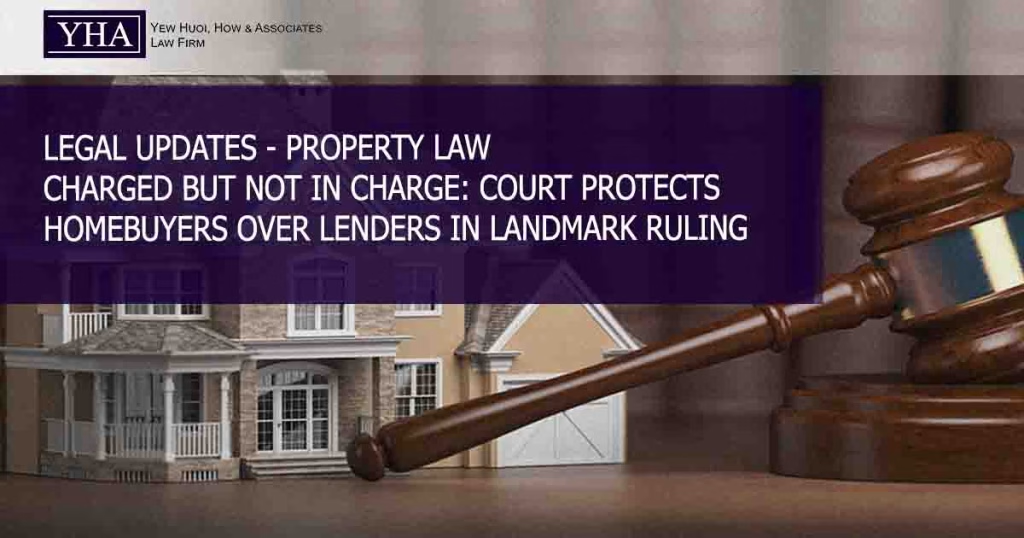1. Summary and Facts
In Champion Score Sdn Bhd v Mohd Sobri Chew bin Abdullah [2025] 3 MLJ 732, the respondent, Mohd Sobri Chew, purchased a property under a housing development scheme and paid the full purchase price. Unbeknownst to him, the developer subsequently created a charge on the property in favour of Champion Score Sdn Bhd, a moneylender. Sobri Chew sued for cancellation of the charge, arguing that the developer, as a bare trustee, had no authority to encumber the property once it was fully paid for. He further contended the charge was void as it was created without his consent and under an insufficient power of attorney (“PA”). The High Court found in favor of Sobri Chew, cancelling the charge and ordering the title transfer to him. Champion Score appealed to the Court of Appeal.
2. Legal Issues
• Whether a developer, standing as a bare trustee after receiving the full purchase price, could create a valid charge over the sold property.
• Whether the charge instrument executed under an irrevocable PA was insufficient, rendering the charge defeasible under Section 340(2)(b) of the National Land Code (“NLC”).
• Whether public policy dictated the purchaser’s title should prevail over a subsequently created charge.
3. Court’s Findings
• The Court of Appeal unanimously upheld the High Court’s decision, dismissing the appeal.
• Upon receiving the full purchase price, the developer became a bare trustee, losing the authority to encumber the property. Hence, the charge created in favor of the moneylender was invalid, null, and void.
• The charge instrument executed by the developer exceeded the authority granted by the PA, making it an insufficient instrument under Section 340(2)(b) of the NLC.
• Public policy strongly favors protecting innocent purchasers from encumbrances unlawfully created by developers. Allowing such charges to stand would severely undermine public confidence in statutory protections designed for property purchasers under the Housing Development (Control and Licensing) Act 1966.
4. Practical Implications
This ruling emphasizes the following critical considerations:
i. Developers who have received full payment for properties become mere bare trustees, losing the power to further encumber the property.
ii. Moneylenders and financial institutions must meticulously verify the scope of authority under powers of attorney before accepting property charges.
iii. Contractual and statutory obligations protecting house buyers are paramount, reinforcing the judiciary’s protective stance in housing matters.
This judgment emphasises the judiciary’s commitment to upholding purchaser rights, providing clarity on indefeasibility exceptions, and reiterating stringent adherence to the scope of granted authority under a power of attorney.

